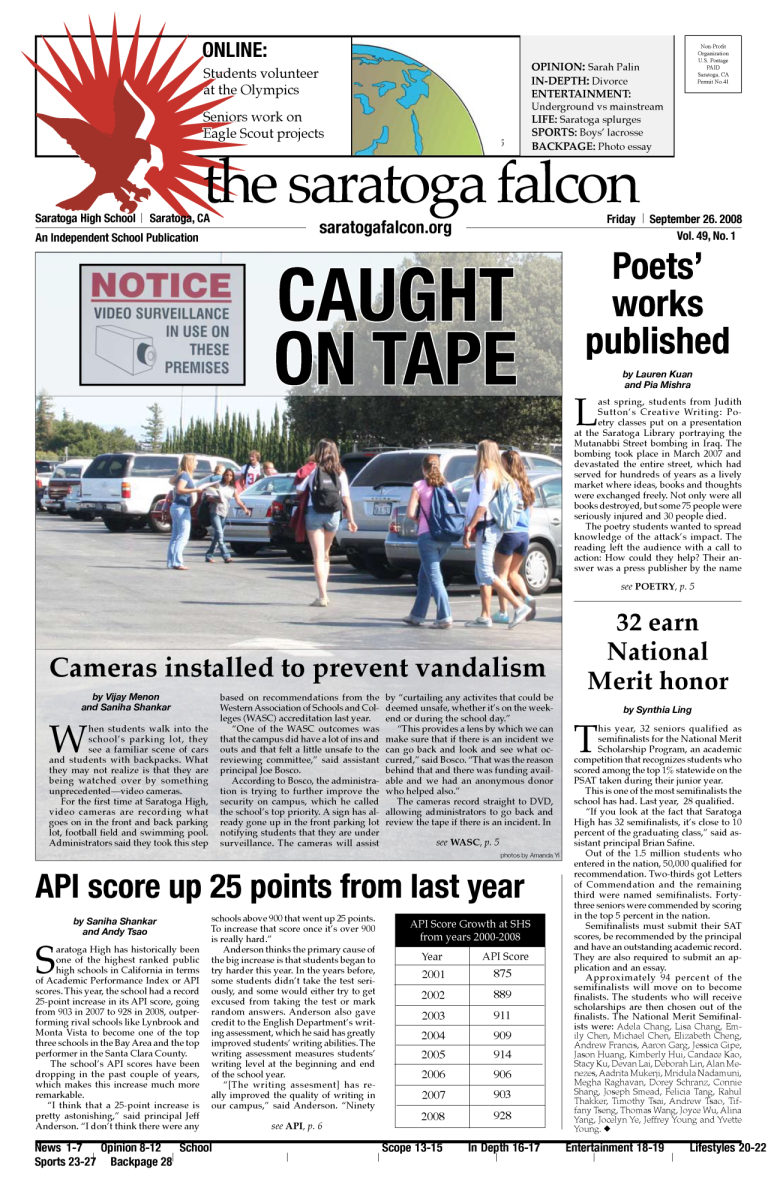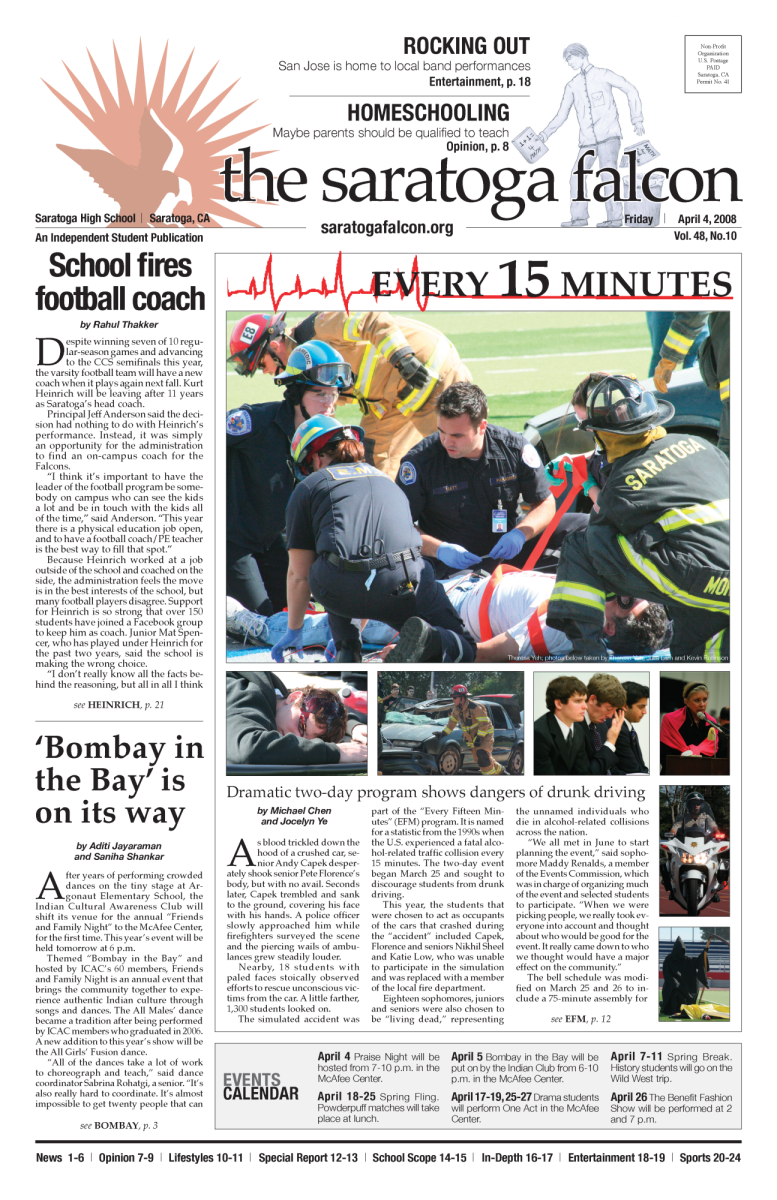On Dec. 13 at around 6:39 a.m., the Santa Clara County Sheriff’s Department learned about a potential bomb threat at Monta Vista High School.
The threat was a piece of graffiti expressing hate about a certain teacher on campus, threatening that there was a bomb planted at the school to blow him up. Bomb-sniffing dogs and bomb technicians circled the campus starting around 7 a.m., and principal April Scott called off school for the day. The investigation ended at 11:30 a.m., with the bomb threat being dismissed as fake.
After two terror-ridden days following the bomb threat, one student admitted to calling in the threat, and was arrested on charges of criminal threat against a teacher, making a bomb threat, and several other charges involving disrupting school business.
This time there was a student found, but what if next time there was no one? The school would live in constant fear of anonymous threats. If a fake threat was called in every day, then the students would not have to go to school for most of the school year before the school staff found anything out.
Monta Vista’s reaction to the bomb threat on campus is a sign of the school’s turn into a more “student-influenced” school. While it is standard protocol to cease school activities when a bomb threat is called in, students may end up abusing this power.
Simply put, if schools aren’t careful, students will have the power to control which days they want to go to school, and the school calendar could be seriously disrupted by a small portion of students.
Monta Vista is only a brief 15-minute drive from Saratoga High, so what’s to stop their influence from hitting this school? How many days will pass before someone decides to call in a “fake” bomb threat? In that situation, will the staff call the threat as fake and dismiss it, or will they shut down the school for a thorough search?
Saratoga is often said to be encased in what is known as the “Saratoga bubble,” meaning that there is a “bubble barrier” that separates Saratoga life from the “harsh, cruel reality” of everywhere else. After living for a while in Saratoga, anyone can assume that Saratoga is the “ideal community” where everyone is happy, and that nothing can go wrong.
We think that in order to keep order in the school and in the community for all schools to enjoy the relative peace like Saratoga’s, schools should evaluate threats on a case-by-case basis and not automatically cancel school. Fortunately, bomb threats remain rare in schools like ours, and, ideally, they will remain that way.



























